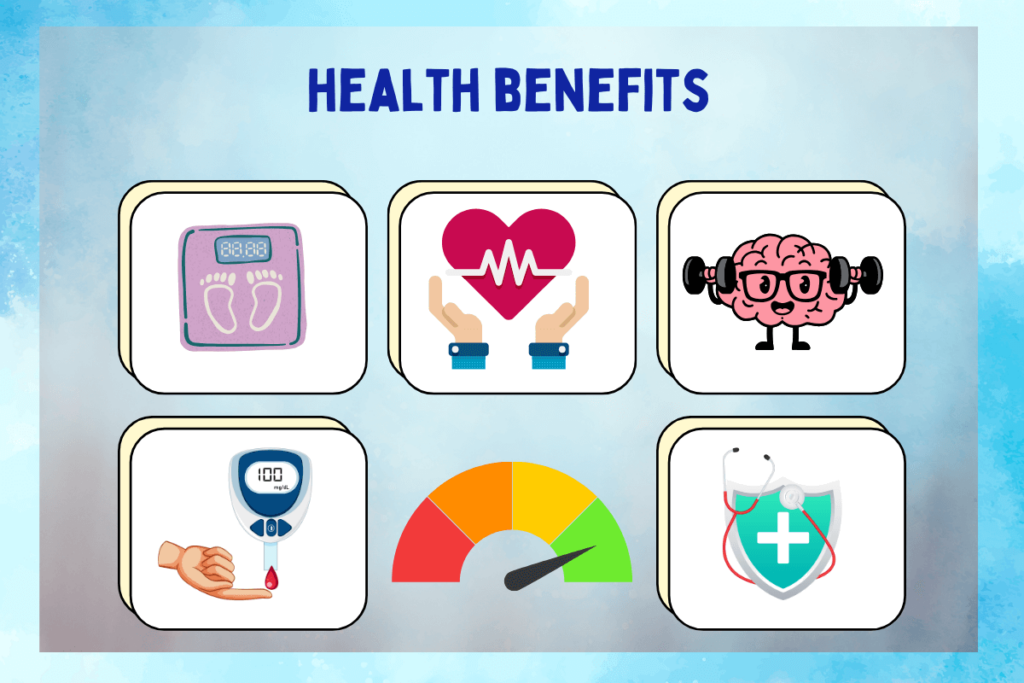Understanding Intermittent Fasting: Methods, Benefits, and Scientific Insights
In recent years, intermittent fasting has become a popular health and fitness trend, especially for weight loss and other health benefits. But what does science really say about these claims? Various approaches exist for intermittent fasting. Which one suits you the most? Let’s dive into the science behind intermittent fasting and explore how it can positively impact your health.
What is Intermittent Fasting?
Intermittent fasting is typically alternating your eating cycle i.e. you go without eating for a longer period of time and then you get a window of time to eat. There are multiple techniques for intermittent fasting. The popular ones are:
- 16/8 Method: You go without eating for 16 hours a day and then eat during an 8-hour window. You can choose any time of the day for your fasting window (people typically choose to fast at night while they are sleeping for their convenience.
- 5/2 Method: This method is designed for a weekly diet. You eat as you normally eat for 5 days a week and then drastically reduce your calorie intake (around 500-600 calories) for two non-consecutive days.
- Eat-Stop-Eat Method: You fast for 24 hours once or maybe twice a week.

1. Weight Loss and Fat Reduction
As you go fasting for a long period of time, intermittent fasting helps you lose weight. Reducing overall calorie intake also leads to fat reduction.
- Metabolism Boost: Fasting increases levels of norepinephrine (noradrenaline), a hormone that boosts metabolism and facilitates fat burning.
- Hormonal Balance: Fasting lowers insulin levels and increases growth hormone production, which enhances fat burning while preserving muscle mass.
A review of studies found that intermittent fasting can lead to a weight loss of 3-8% over 3-24 weeks, particularly from stubborn fat areas like belly fat.
2. Improved Heart Health
If you combine intermittent fasting with a healthy diet, it can significantly improve your cardiovascular health.
- It may lower your blood pressure and improve your heart rate.
- Doing it correctly may improve cholesterol levels by reducing bad cholesterol and increasing good cholesterol.
- It also decreases triglycerides, which are linked to heart disease risk.
Several studies indicate that when combined with a healthy diet, intermittent fasting may help reduce the risk factors for heart disease.
3. Enhanced Brain Function and Mental Clarity
Studies show that intermittent fasting can improve brain function and may promote mental clarity. The brain hormone BDNF (brain-derived neurotrophic factor) is increased during fasting, which enhances learning and memory.
- Cognitive Protection: Animal studies have shown that intermittent fasting can protect against brain diseases like Alzheimer’s and Parkinson’s.
- Mental Clarity: Many people report improved focus and mental clarity during fasting due to stable blood sugar levels and increased production of ketones, an alternative fuel source for the brain.

4. Inflammation and Longevity
Due to chronic inflammation, people may suffer from various diseases such as diabetes, cancer, and heart disease. Intermittent fasting may help reduce inflammation.
- Autophagy: Fasting triggers a cellular repair process called autophagy, where cells remove damaged components and regenerate. This process is linked to longevity and disease prevention, helping to delay the onset of age-related diseases.
There was a study in The New England Journal of Medicine that shows that intermittent fasting boosts autophagy, enhancing the body’s ability to combat inflammation, repair tissues, and extend lifespan.
5. Blood Sugar Control and Reduced Risk of Type 2 Diabetes
You can manage blood sugar levels and improve insulin sensitivity while on intermittent fasting. Insulin resistance is reduced during the fasting period. Needless to say, insulin resistance is a major contributor to type 2 diabetes.
Studies have shown that intermittent fasting lowers fasting insulin levels by 20-31% and reduces blood sugar by 3-6%, making it an effective strategy for preventing or managing type 2 diabetes.
Follow the Science: Is Intermittent Fasting Right for You?
However, as we have discussed, the science behind this method of intermittent fasting is not a one-size-fits-all approach. Although it offers scientifically backed benefits like weight loss, improved heart health, and better brain function, it is very important to consult a healthcare provider before starting. Considering your health conditions is essential. Additionally, choosing the right method for you is key to success with intermittent fasting. You should select a method that fits your lifestyle. And of course, maintaining a balanced, nutritious diet during eating periods is crucial to getting the best results from your efforts.
Want to learn about other methods of popular diets? Dive on to our article: The Ultimate Guide to Popular Diets: Keto, Vegan, and Paleo Explained.






